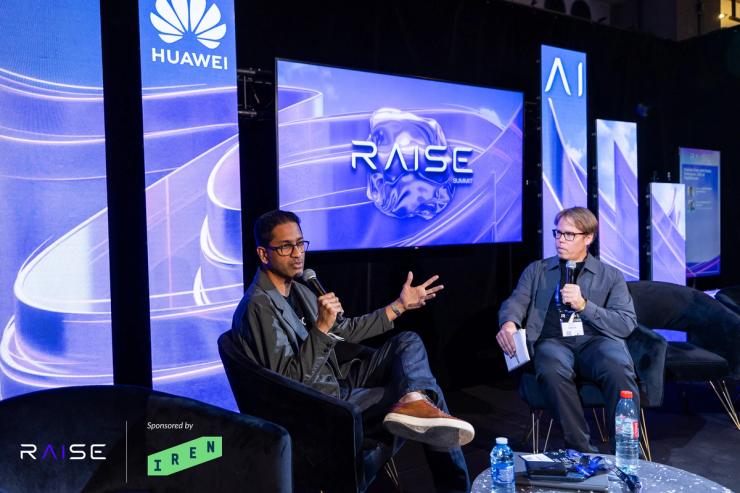The News
As global policymakers wrestle with how to best govern artificial intelligence, some tech CEOs gathered at the RAISE Summit in Paris this week honed in on one point: regulation is not the best path to achieving safe AI right now.
Paddy Srinivasan, CEO of cloud service provider DigitalOcean, said companies still need three to five years to innovate before governments should start cracking down on them. “At this point, we just need to let the free market ecosystem play itself out,” he told Semafor’s Reed Albergotti during an on-stage interview. “Of course, there needs to be just enough regulation to make sure that we’re not going off the reservation, but I feel this is not the time to really clamp down.”
The event’s presence in Europe places it at the heart of one of the strongest governmental pushes to rein in the technology. The EU’s AI Act is the foremost piece of legislation attempting to promote safety and responsible development by categorizing systems by the level of risk they pose and applying rules to those categories. Requirements for general-purpose AI models like ChatGPT go into effect next month.
Meanwhile, the Trump administration has taken a relatively hands-off approach to regulating AI, though individual states have pushed bills to govern the models more locally. “I think the administration is doing a fine job of just letting the technology companies innovate with enough oversight so that we are not damaging the ecosystem,” Srinivasan added.
Illia Polosukhin, an ex-Google researcher who co-founded AI blockchain platform NEAR Protocol, said lawmakers can’t outrun the pace of AI development, so they end up trying to hit a moving target. “Regulation by government is probably not the right instrument” for AI safety, he said. Decentralization, encryption, and confidential computing — which protects data during processing — offer a more reliable security framework than what governments provide, like certifications and model reviews from external committees, he said.
Know More
While regulation is a bottleneck to AI innovation, there’s a significant barrier to AI adoption in the lack of education on something that will impact every person in the world, noted Sarah Franklin, CEO of human resources platform Lattice.
Franklin, Polosukhin, and three other members of their panel also could not agree on a definition of artificial general intelligence. “If we cannot define it and educate a whole planet about it, there will be fear, uncertainty, and doubt,” she said. “The amount of education and change management of the people is not talked about enough and very much underestimated in terms of the amount of work that will entail.”
Notable
- Anthropic CEO Dario Amodei is one of the few left in the AI space advocating for AI regulation. Earlier this year, the startup lobbied members of Congress to vote against President Donald Trump’s One Big Beautiful Bill Act, which would prevent states from regulating AI for 10 years, Semafor previously scooped. The Senate removed that provision in later drafts of the bill.


